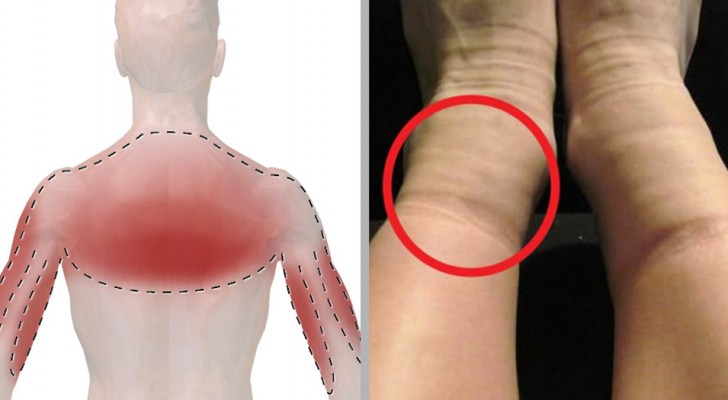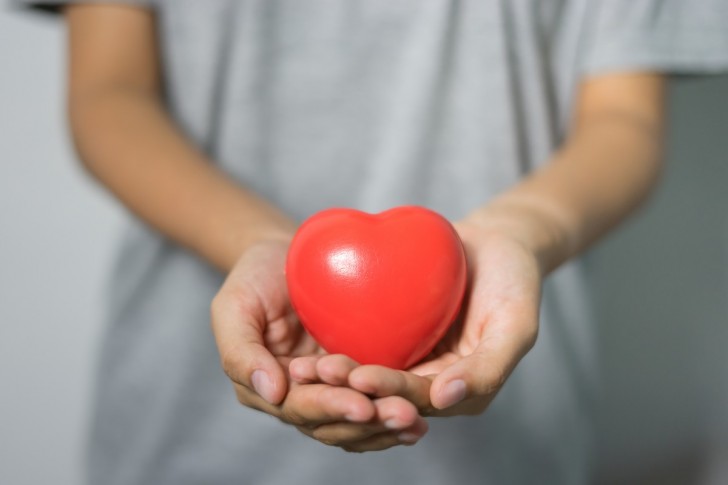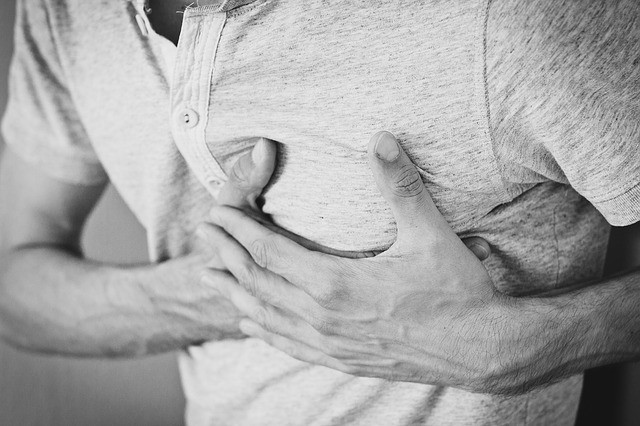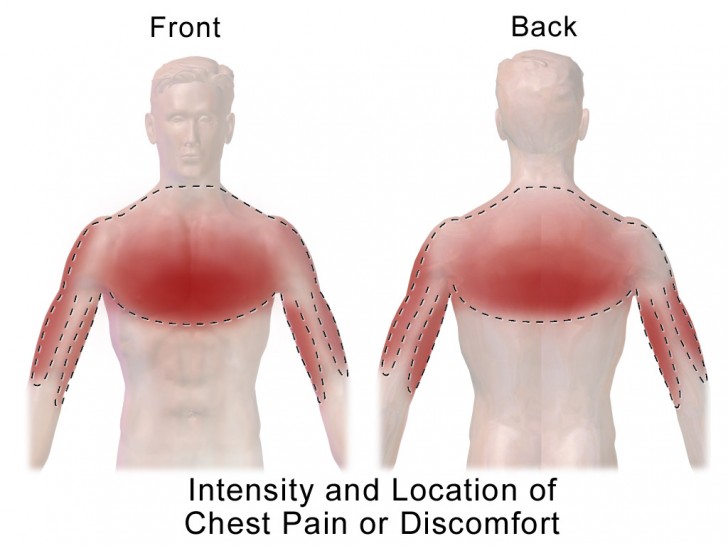11 apparently trivial signs that could indicate heart problems

"Please, don't play with my heart." How many times have we heard this phrase repeated?
Probably many times, and it is not just a saying! The heart is the engine of the human body. Thanks to this incredible organ, the blood flows in our veins, and we are able to carry out our activities appropriately.
However, it is not always easy to recognize when something is wrong with our heart. Symptoms that may warn of small or large cardiovascular malfunctions may not always be clear and understandable.
Therefore, it is appropriate to keep them in mind. Below, we present eleven, supported by the scientific studies that have reviewed and confirmed their validity.
These symptoms can be more or less frequent in many people, since they may not always specifically indicate heart problems.
However, if we experience them often, then we should seriously evaluate whether or not it would be appropriate to get a medical check-up.

1. Swollen legs and feet - If it is difficult to remove your shoes, or if your socks leave marks on your legs continuously, then you may be experiencing some water retention which, according to researchers, can sometimes be linked to coronary and cardiac diseases.
2. Irregular heartbeat - Arrhythmia is the typical condition in which it seems to us that your heart is not beating as it should and that it "skips" a beat every so often. In this case, it is absolutely appropriate to make an appointment with a cardiologist.
3. Chest or shoulder pain - These pains can often mean muscle fatigue, perhaps due to having been lying in the same position for too long. But this is not always the case. In fact, the "weight" one feels on the chest or on the shoulders could be the first symptom of angina pectoris (the lack of oxygen in the heart muscle.).
4. Wheezing and shortness of breath - Attention to how we breathe! In fact, if we often find it hard to recover our breath, even without having performed excessive physical activity, or having difficulty in breathing deeply, we could be suffering from dyspnea, a pathology linked to possible cardiovascular problems.

- 5. Sleep apnea and heavy breathing - Like breathlessness, also snoring and apnea at night while sleeping can mean that our heart is not performing its functions as it should.
- 6. Sexual dysfunctions - In addition, problems related to the blood supply to the genital organs, both male and female, can in some cases be linked to cardiac malfunctions.
- 7. Elevated anxiety - Those who panic easily and frequently, or are subject to sudden and repeated anxiety attacks could be more subject to having heart attacks as different scientific researches have shown.

8. Sore gums and heart disease - Although at first sight, they seem to be two parts of the body that are difficult to link together. However, in some cases, and according to medical experts, the bacteria that damage the gums can also attack the arteries.
9. Poor appetite - Having a good appetite is synonymous with health. When we lack appetite, or if eating food gives us a sense of nausea, it is advisable to evaluate the amount of B-type natriuretic peptide hormone (BNP) in the blood, which in large quantities is linked to a weak heart.
10. Fainting and dizziness - When we suddenly faint or lose consciousness for no apparent reason, our heart may not have supplied enough blood to the brain. The same can be said for bouts of dizziness.
11. Skin diseases, herpes or eczema - Just look in the mirror: if, in general, you are pale or ashy grey in the face, or have recurrent herpes or eczema, according to some research studies, you may be more prone to heart attacks.
- 1: https://www.health.harvard.edu/heart-health/fluid-retention-what-it-can-mean-for-your-heart
- 2: https://www.webmd.com/heart-disease/atrial-fibrillation/heart-disease-abnormal-heart-rhythm
- 3: http://www.heart.org/HEARTORG/Conditions/HeartAttack/DiagnosingaHeartAttack/Angina-Chest-Pain
- 4: https://www.medicinenet.com/script/main/art.asp?articlekey=3145
- 5: https://www.ahajournals.org/doi/full/10.1161/CIRCULATIONAHA.117.029400
- 6: https://www.europeanurology.com/article/S0302-2838(03)00306-3/pdf
- 7: http://citeseerx.ist.psu.edu/viewdoc/download?doi=10.1.1.565.6839&rep=rep1&type=pdf
- 8: https://www.livescience.com/21176-gum-disease-and-knee-arthritis.html
- 9: https://medicalxpress.com/news/2012-07-weak-heart-poor-appetite.html
- 10: https://www.cardiologistmidtownnyc.com/symptoms/syncope/
- 11: https://www.webmd.com/skin-problems-and-treatments/eczema/news/20180524/severe-eczema





